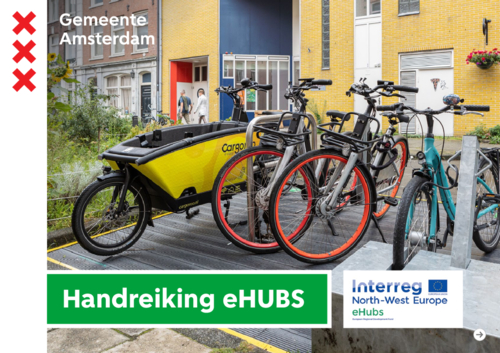Smart Shared Green Mobility Hubs
- WHO: Promotion of Operation Links with Integrated Services aisbl (POLIS), Mpact asb, Autodelen.net, Bayern Innovativ Ltd., Cargoroo, URBEE (E-bike network Amsterdam BV), City of Nijmegen, Transport for Greater Manchester, City of Leuven, TU Delft, University of Newcastle upon Tyne, City of Dreux, Kempten (Allgäu), University of Antwerp, The Highlands and Islands, Transport Partnership (HITRANS), Electricity Supply Board (ESB), Autorité Organisatrice du Transport (AOT - Service Public de Wallonie Mobilité et Infrastructures), Mpact vzw
- WHERE: Amsterdam, Leuven, Arnhem, Nijmegen, Manchester, Kempten, Dreux, Inverness, Wallonia Region, and Dublin
- DURATION: 3 years, starting in 2019
- ROLE OF AMSTERDAM: Amsterdam leads this project
- TOTAL BUDGET: €8,807,586
- AMOUNT FOR AMSTERDAM: €717,378
